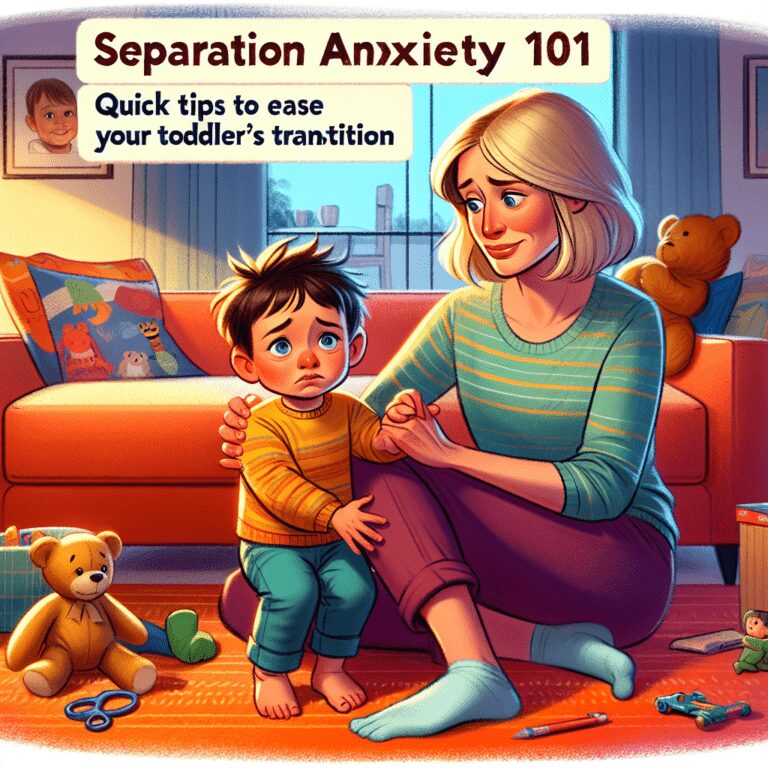
Navigating the Journey: Your Ultimate Guide to Supporting Family Members with Mental Illness
As a careworker, I’ve seen the profound effects mental illness can have—not just on the individuals grappling with their mental health but also on their families. Supporting loved ones during turbulent times can feel overwhelming, confusing, and even lonely. Yet, with the right tools, resources, and insight, you can navigate this journey effectively. This guide encompasses everything you need to know about supporting family members with mental illness, emphasizing empathy, understanding, and practical strategies.
1. Understanding Mental Illness
Understanding mental illness is the first step toward providing support. Mental illnesses encompass various disorders affecting mood, thinking, and behavior, ranging from depression and anxiety to schizophrenia and bipolar disorder. Typically, these conditions arise from a combination of genetic, biological, and environmental factors.
A. Common Misconceptions
Despite the prevalence of mental illness, misconceptions abound. Many people still see these conditions as a weakness or as something that can be simply “snapped out of.” These misconceptions can lead to stigma, thereby exacerbating isolation and hindrance in seeking help.
B. Importance of Awareness
Recognizing the signs of mental illness in your loved ones is crucial. Symptoms may manifest distinctly, including changes in mood, withdrawal from activities, difficulties in functioning at work or home, and drastic changes in behavior. If you can identify these signs, you can encourage your loved one to seek professional help.
2. Communication is Key
When communicating with someone experiencing a mental illness, remember that tone, patience, and clarity are essential. Here are some pointers on how to communicate effectively:
A. Choose the Right Environment
Ensure that your conversations take place in a safe and comfortable environment. An inviting atmosphere fosters openness and trust.
B. Listen Actively
Listening is just as important as talking. When your loved one shares their thoughts and feelings, listen without interruption and validate their emotions.
C. Use Simple Language
Avoid jargon or overly complicated language. Clear, concise phrases can help your loved one understand and engage more comfortably in the conversation.
3. Encourage Professional Help
While your support is essential, professional treatment is often required. Here’s how to encourage your family member to seek help effectively:
A. Normalize Professional Help
Help them understand that seeking help is a sign of strength rather than weakness. Share stories or testimonials of others who have benefited from therapy or medication.
B. Support the Search for Resources
Assistance with finding a mental health professional can be a tremendous relief. Provide resources such as hotlines, local therapists, or support groups within your community.
C. Accompany Them
Sometimes just walking into a therapist’s office can feel overwhelming. Offer to accompany your loved one to their first appointment to provide comfort and support through the experience.
4. Cultivating a Supportive Environment
A nurturing environment is vital for your loved one’s recovery journey. Here’s how to create that space:
A. Promote Emotionally Safe Spaces
Encourage discussions about feelings and emotions without judgment. Establishing a non-confrontational atmosphere allows individuals to express themselves freely.
B. Engage in Healthy Activities Together
Share activities that mitigate stress. Going for walks, practicing mindfulness, cooking healthy meals, or engaging in hobbies together fosters bonding and creates positive associations.
C. Establish Routines
Routine can provide structure and predictability during unpredictable times. Encourage your loved one to maintain regular sleep, exercise, and eating habits.
5. Setting Boundaries
Setting empathetic yet firm boundaries is fundamental to your well-being as a caregiver. Understanding how to establish these boundaries can significantly benefit both you and your loved one:
A. Recognize Your Limits
It’s vital to know your emotional and physical limits. Overextending yourself can lead to burnout, reducing your ability to provide effective support.
B. Communicate Boundaries
Having open discussions about what you can and cannot handle is essential. Ensure your loved one knows that boundaries are for maintaining both of your well-being, not for pushing them away.
C. Revisit Boundaries Regularly
As situations change, touch base with your loved one about your boundaries and assess if they still apply. Flexibility is important, but both parties should remain comfortable.
6. Educating Yourself and Others
Knowledge is empowering; understanding mental illness allows you to empathize with your loved one authentically. Here’s how to build that knowledge base:
A. Read and Research
Take time to read books, articles, and reliable online resources about mental health. Gaining different perspectives helps you understand your loved one’s experience better.
B. Engage in Conversations
Talk to mental health professionals, when possible, to gain insights and even share experiences. They can help demystify your loved one’s condition and provide smoother communication strategies.
C. Encourage Family Discussions
If appropriate, encourage the entire family to admit the stigma surrounding mental illness. Open dialogues amongst family members can increase awareness and promote mutual support.
7. Coping Strategies for Caregivers
Supporting a loved one with mental illness can be demanding. Here are some self-care strategies to maintain your own mental health:
A. Prioritize Self-Care
Make self-care an integral part of your routine. Engage in activities you enjoy, prioritize sleep, and maintain a balanced diet. Seek time for relaxation and return recharged.
B. Seek Support
Include trusted friends or support groups in your journey. Sharing experiences with others facing similar challenges can lift burdens and provide practical tips.
C. Consider Professional Counseling
Sometimes, talking to a therapist helps caregivers navigate their feelings. Additionally, professional guidance supports the caregiver’s mental health and coping mechanisms.
8. Understanding Recovery
Recovery from mental illness is not linear; it varies for each person. Understanding this can help both you and your loved one during difficult moments:
A. Celebrate Small Wins
Recognize and celebrate progress, no matter how slight. Celebrating achievements fosters positivity and motivation.
B. Be Patient with Setbacks
Remind both yourself and your loved one that setbacks are a natural part of recovery. Offer compassion and understanding when they encounter challenges.
C. Stay Persistent
Persistence is vital in mental health support. Continue dialogues, encourage participation in treatment, and express your unwavering support to nurture resilience.
Conclusion
Supporting a family member with mental illness can be a journey filled with difficulties and triumphs. Remember that both you and your loved one are navigating uncharted waters; compassion, communication, and education can light the way. By fostering a supportive environment, setting appropriate boundaries, and advocating for professional help, you can help your loved one thrive. Moreover, embracing your own self-care, knowledge acquisition, and connection with a broader support network is just as crucial in this journey.
Just as we would not expect someone to bravely stand through a storm without protection, we must arm ourselves with understanding and resilience to weather the storms of mental illness together.
FAQs
Q: How can I encourage my loved one to seek help?
A: Normalize professional help, share success stories, assist in finding resources, and offer to accompany them to their first appointments.
Q: What if my loved one refuses to talk about their feelings?
A: Create a safe environment for dialogue, practice active listening without pressure, and be patient. It can take time for individuals to feel comfortable sharing.
Q: How can I take care of myself while supporting my loved one?
A: Prioritize self-care routines, seek emotional support from friends or support groups, and consider professional counseling if needed.
Q: Are there specific healthy activities I can do with my loved one?
A: Engage in calming activities like yoga or meditation, enjoy nature through walks or hikes, or explore new hobbies together to foster bond and relaxation.
Q: How do I handle it if my loved one has a setback?
A: Approach the situation with empathy and understanding. Remind them that setbacks are part of the recovery process and celebrate their previous progress.
Q: What resources are available for learning more about mental illness?
A: Explore local libraries for books, reputable online mental health organizations, webinars, and workshops. Engaging with mental health professionals can also provide a wealth of information.
Q: How can families work together to support a loved one?
A: Encourage open communication, educate all family members, and create a united front by discussing how to support your loved one without judgment.
Q: How important is routine for someone dealing with mental illness?
A: Routine can be incredibly stabilizing as it provides structure and predictability, creating a sense of safety for individuals who may feel overwhelmed.
Q: Is it okay for me to seek help for my mental health while supporting a loved one?
A: Absolutely! Your mental well-being is vital to effectively support your loved one. Prioritize your self-care and seek help when needed.
Disclaimer: I may earn a commission from qualifying purchases as an affiliate. Please note that I only recommend products I believe will provide value to my readers.







